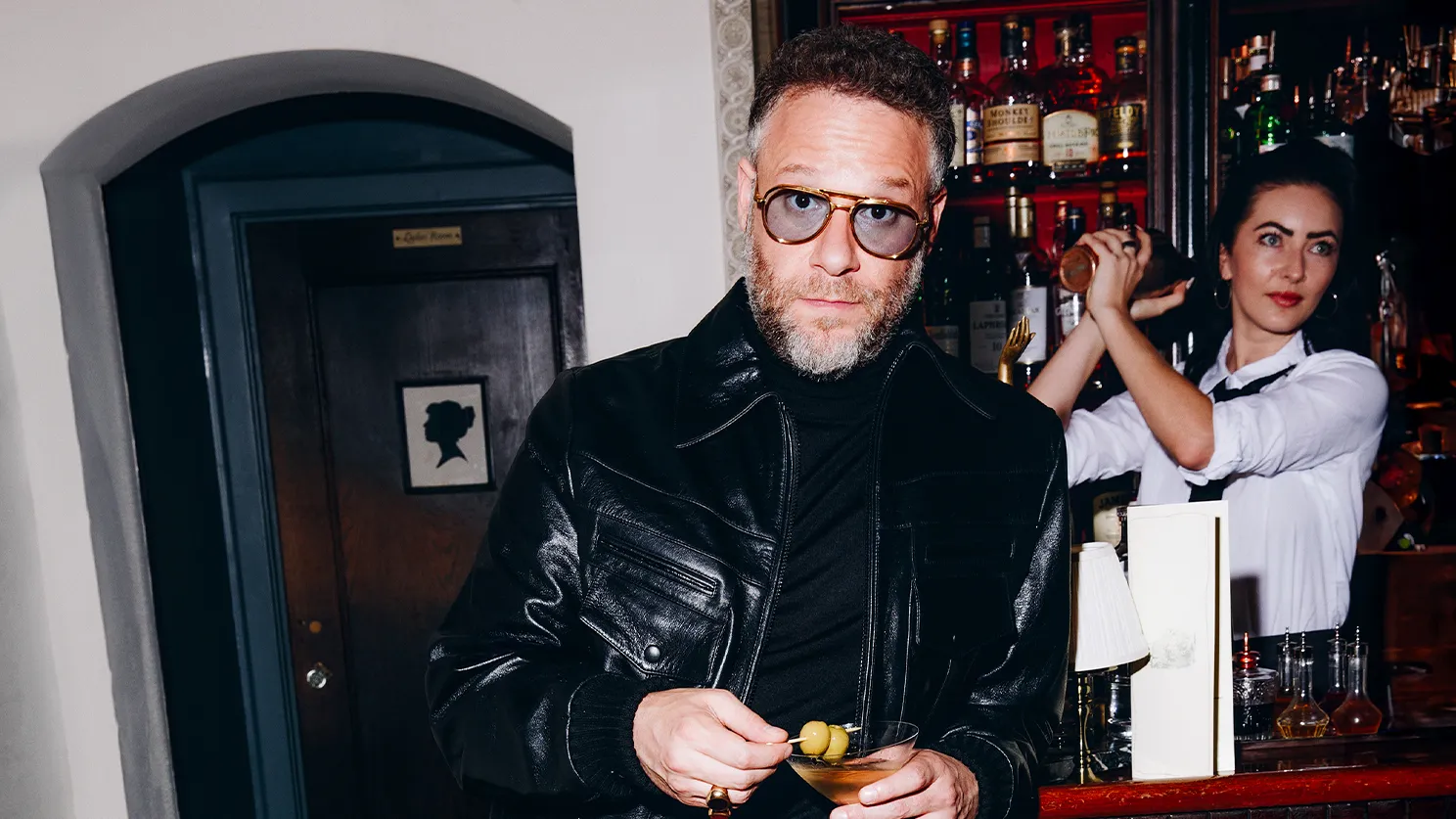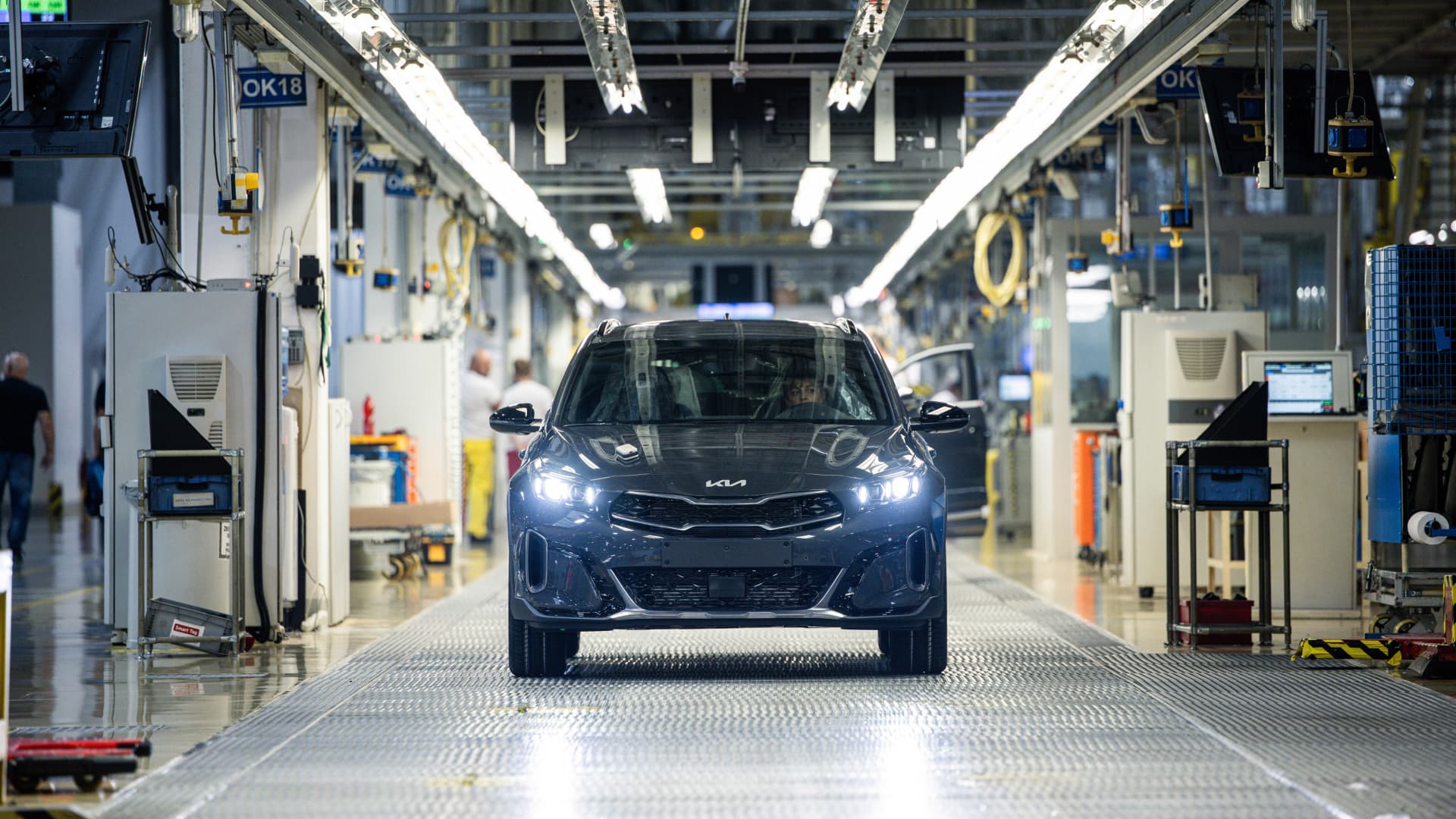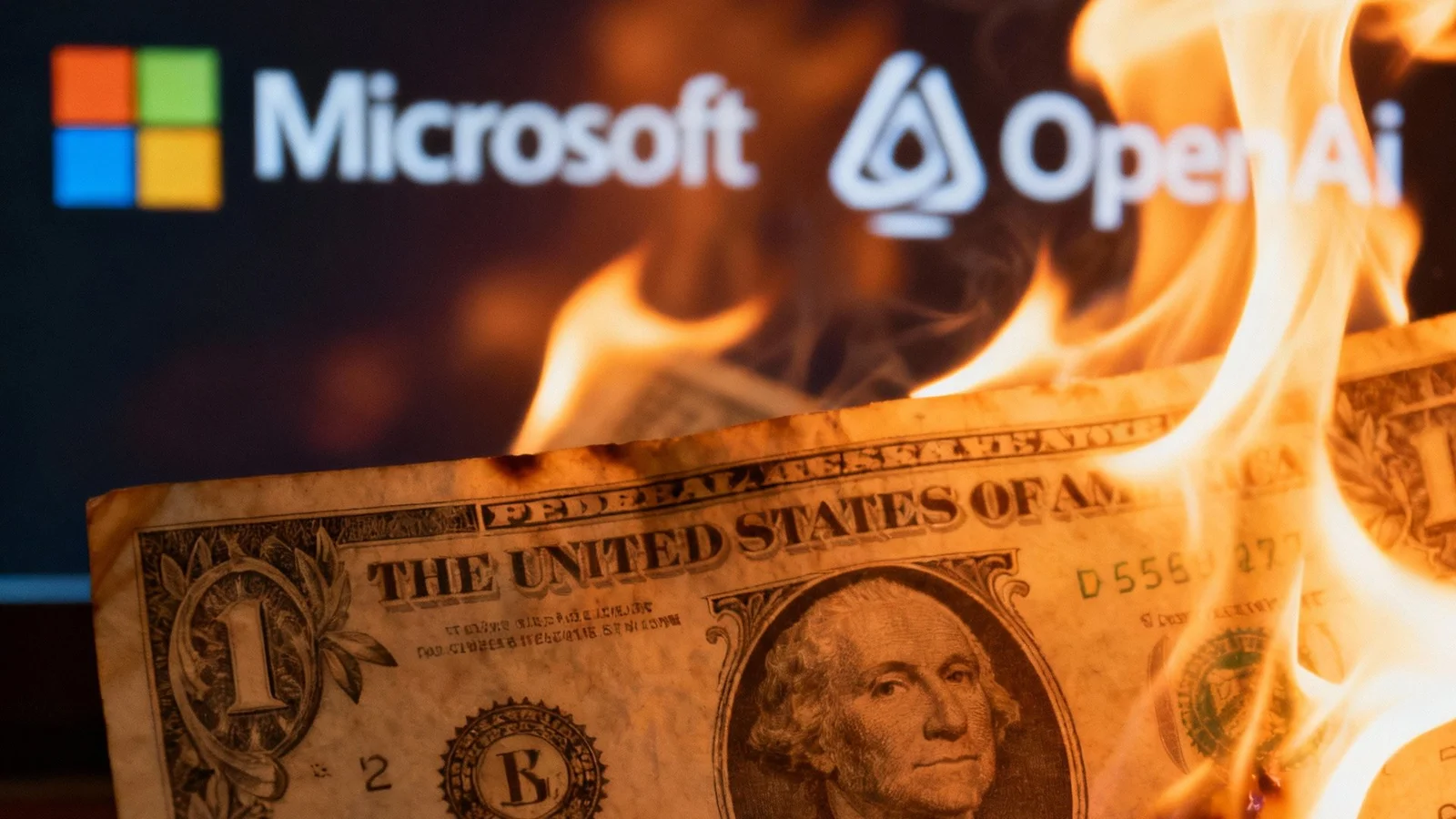Copyright gq

“Crushing pressure” is his answer. He says he was able to enjoy the feeling of winning for about 24 hours. Then: pain. “I’m not surprised at all,” he says. “I was waiting for it.” The Studio, about a movie-studio head, played by Rogen, and his attempts to navigate an increasingly ridiculous and paranoid industry, is many things—a Hollywood satire, a workplace comedy, a filmmaking showcase—but it is, at root, about what happens to creative people with good intentions when they run headlong into the business of making what they make. Rogen, who has never had a job outside of show business, knows about this collision intimately. It is a bunch of trophies; it’s overwhelming anxiety; it’s about how the trophies lead to anxiety and the anxiety—if you’re lucky—leads back to the trophies. GQ: The Studio is obviously a very personal show, but it’s not always obvious to me where you are in it. Seth Rogen: I mean, my character is really based on me and my own fears and anxieties. We sort of exaggerate them and we apply them to a job that is not my main job but is a job that I really relate to, because I run a production company with a few other people and we choose in some ways which movies get made and which ones don’t, and which actors we hire and which ones we don’t, and what notes we give and which ones we don’t. And I’m constantly dealing with the things my character is dealing with and being afraid that I’m letting down people that I’m a big fan of, and being afraid that I am not a part of the team in the way that I want to be a part of the team, and being afraid I’m making the wrong choices as to which movies I’m getting behind and which ones I’m not. Am I being too business-minded? Am I really nurturing creativity? Am I making these choices for the right reasons? That’s all based on my own fears. How often do you feel like the villain in those interactions? Regularly? [Laughs] I would say not all the time, but enough that it’s a thing. You were kind enough to have me on the set of The Studio last summer, and when I was there, a lot of people working on the show were kind of like, “I don’t know if anyone’s going to care about this behind-the-scenes showbiz thing.” Was that ever a fear that you had? I think I understand writing enough to understand that I can take what appears to be a very niche idea and turn it into a comedic concept that is understandable and fruitful for people who have nothing to do with the thing that I’m writing about or talking about. And to me, that’s a writing challenge and one that I think I’m up to. I grew up watching The Larry Sanders Show in high school. I had nothing to do with Hollywood. I didn’t understand the comings and goings of a talk show host and the conundrums they face on a daily basis. It couldn’t have been further from my life. But the show was written in such a way that the comedic concept of the episode was clear and universal, and the joke was clear. Contrary to the fears of people who were working on the show, it came out and was basically immediately successful with both audiences and, interestingly, the quote, unquote, town. Are you surprised Hollywood embraced the show the way it did? I was actually quite worried about that. When you make a thing that’s about a very specific industry, that industry historically is going to be very critical of it and very hard on it and hold it up against their own lens and their own standards of reality. I make a lot of things where I’m like: “Steven Spielberg’s not going to watch this.” This was a thing where I’m like: “Oh no, I feel like these people who I really look up to will probably at least check it out.” And so that was something that really kept me up at night a few weeks, just knowing the people I really thought would actually watch the show, at least out of curiosity, were the people that I most respect and am the most craving [of] their validation. The Emmys ceremony basically could’ve been an episode of the show—which is a loving portrait of the town, but it’s also a portrayal of an industry driven by fear and greed that routinely crushes the souls of the artists who make it go. And the reaction from all the people you’re portraying was like: You really saw us, man. It really is true. It’s funny, I think people outside the industry think it’s very exaggerated and people in the industry think it’s very real, and that, I think, shows how heightened the industry is and how unhinged it is behind the scenes, even in comparison to how people project it might be. We obviously bring things to pretty comedic climaxes that maybe have a step outside of day-to-day realities of the industry, but [are] the general plots and conundrums and conflicts very much based on real things? Yeah. On your show, Hollywood is in crisis. You actually work in this industry. In 2025, how fucked is this business, actually? It’s been better, but it’s a constantly evolving industry and it’s a very volatile industry by nature. And to me that has always been what’s interesting about it and what’s exciting about it and what is, at times, incredibly aggravating. But, in other times, incredibly inspiring is how fast it can change and how on a dime the whole industry can shift into a new direction. And I’ve always kind of tried to ride that wave as opposed to fight it. This is a nice, abstract answer. But the answer is: I don’t know. Many people have very bleak views of the industry. It’s hard for me to have too bleak a view of the industry. I’m on two television shows that I’m very proud of. I am able to make movies that are in theaters. Ninja Turtles is a good example. It’s based on IP. We made the exact movie we wanted to make, we took some huge creative swings and it did very well and got very good reviews. So it’s hard for me to look at that and be cynical about that experience. But if I ran a movie studio, I would probably have a much different view. If I was responsible for billions of dollars in revenue every year, and if the seismic shifts in the industry were really affecting my entire business strategy, then that would be a much scarier place to be, I would imagine. Your show is full of cameos from real Hollywood people—have you heard from anyone who turned you down and now regrets it? I had a few people come up to me at the Emmys saying they regret it, which was very meaningful to me. [Laughs.]That’s all I want—for people to regret not working with me. The day that I visited the set, you guys were shooting a scene where your character falls down and you break your pinkie. You must have done 25 takes of that scene, reacting to your own broken finger, and all of them were different, and all of them were funny. Can you describe to me how and what you’re doing there? I mean, not necessarily. The way we shoot the show, like, a million things have to come together in order to make the scene work. And so sometimes the acting is good and the performance is good, but something else went wrong and so we have to do it again. And so something like that, it was probably a combination of my own performance not being what it needed to be and a million other things not being what they need to be. And then eventually we get one that’s good. It’s usually around take 16. And then once it’s good, you want to keep going to try to get a few good ones, and then the wave crests and you feel them getting worse and worse and worse. And then you always end on a down note, which is always a bummer. You’re always walking away feeling, Yeah, we should have stopped a few takes ago. The Studio is made by your production company, Point Grey, and most of what you do lives under that umbrella, but occasionally you’ll go outside and do a dramatic role in a movie, like Danny Boyle’s Steve Jobs or Steven Spielberg’s The Fabelmans. When do you decide when to go do that? When they offer it to me. It’s not like I’m getting offered tons of these movies that I’m turning down. I get offered one every five or six years and then I'm in it. I’m not turning down David Fincher movies to go produce Blockers. You’ve turned out to be a very talented dramatic actor. I’ve found myself wondering why when you go back and make your own stuff, it’s almost always comedy. To me it’s more fun and more challenging in a lot of ways, honestly. I find there’s few things people want to do less than proclaim that they are trying to be funny. I think that a lot of people are just very uncomfortable doing that, and a lot of filmmakers are very uncomfortable stepping into those waters. And I don’t view dramatic things as harder or more meaningful or things that people are taking more seriously as they’re making them or putting more thought into them as they’re making them. To me, to make a great comedy is making a great drama, but then also making it funny, which is harder. And so I view making a great comedy, honestly, as much harder than making a great drama. You write and direct with your business partner, Evan Goldberg. I’m curious: How did you become the actor and he become the behind-the-scenes guy? It was sort of based on desire. It’s funny because when we were young and we made little movies with a video camera, he would be the one on camera, and I was the one shooting them. But I was inherently more interested in performing, always. I took acting classes as a kid. I did stand-up comedy. And so for me, performing was a part of the creative expression that I was interested in. And for him, performing was just not a part of the creative expression he was interested in. Which worked out very well for us, ’cause I think the fact [is] that he has no interest in doing that part of the job and there’s no resentment or jealousy, or there’s none of him that wishes he was getting this attention that I’m getting. And if anything, he rejoices in days like today where I’m taking pictures and doing interviews and he’s sitting at home with his family. That, to him, is a very great trade-off. You were lucky enough to be pretty successful early on, specifically with two of the first movies you wrote and starred in, Superbad and Pineapple Express. Do you think that was just luck, or something more? I think luck has a lot to do with it. The timing was in our favor. The moviegoing climate was in our favor. The types of risks studios were making at that time. The mentality that went into making movies was very different then than it is now. If I was just born 15 years later, things could have gone very differently just because of timing. I feel like my first few years were kind of frictionless, and then from 2008 on, I would say I had a lot of hits and misses and alternating between the two things that—and it’s almost all work I’m very proud of, but I made a lot of things that did not connect with audiences at all and did not do well in the box office at all and did not do well critically at all. I was always working, so by the time a thing came out, I was kind of two projects in the future, and so I was never really deeply existentially concerned that my whole career might come crashing down. Maybe after The Interview I was a little bit, but other than that, I’ve kind of felt like I was within the margin of error enough to at least keep going. Have you resolved your feelings about what happened with The Interview? It’s not a thing I think about that often anymore, so I guess I’m pretty at peace with it. I still don’t know for sure if I know exactly what happened necessarily and exactly who did what and exactly the exact series of events that kind of transpired. I feel still as though maybe that truth is a little elusive to me at times, and I kind of go back and forth on what it might be— Yes, let’s get into this. Who actually did the hack? I don’t know. [Laughs.] Probably North Korea, but maybe with, in league with people in America, perhaps? Resentful employees from the Sony corporation is something that is a prevailing theory that’s been out there as well. So I don’t know. I feel as though North Korea definitely had something to do with it, but I don’t know if American people also had something to do with it. When you look back now, are there movies or projects you’re particularly proud of? I mean, a lot of ’em. I’m really proud of Superbad. I’m proud that we made that movie and that it’s based on my friends and that I wrote it with my friend, and that it turned out really better than we hoped it would and that people still like it. And to me, the fact that it has in any way stood any test of time, which I’m very aware comedy is not necessarily even designed to do that necessarily. So yeah, I’m very proud of that movie. Pineapple Express. This Is the End. Are there ones that you regret or would like to have had another shot at? I think The Interview, for example, could have used maybe another set comedy piece in the second half of the second act that could have bolstered the comedy in some ways. It could have changed everything. It’s so funny because that’s my perspective on it. With everything that went wrong with this movie, I’m like, “We could have used another set piece around page 70.” [Laughs.] To me, that’s what I view as something that if I could go back, I would do differently with the movie. I just feel like I have a better understanding now of what a comedy film needs in order to really delight an audience in the way that I want to. You like to joke, or maybe it’s not a joke, that you never had a real job. Not really, no. I was a writer on Undeclared when I was 18. I knew it was very weird. I was very aware that I was probably the youngest person to write on and act on a network television show. I had enough perspective to see everyone I was with was older. A lot of people in your industry who are successful when they are young later have a period of time where, I don’t know if they regret it or they pretend to regret it later on, but a period of excess related to being young and successful. Did that ever happen to you? Not in a meaningful way. I was too busy working. [Laughs.] And I started dating my wife in 2005, before any of the movies I was in had come out. And so I’ve been in a very stable relationship throughout my entire journey of becoming a much more recognizable person. And so I think that that also really helped stabilize me in a lot of ways. I used to be able to much more burn the candle at both ends. I don’t think I ever went crazy, but I used to be able to shoot all day and then go out and hang out and stay out pretty late with friends, and then get up the next morning and go to set and work for another 13 hours. And it wouldn’t show necessarily in the ways it would today, but as soon as I felt like it was in any way limiting my ability to have the energy I needed to perform or anything like that, then I very quickly stopped doing it. How often do people tell you no at this point? All the time. We’ve been rejected this week. Maybe not this week. Last week. [Laughs.] Recently, you were in Venice at the Venice Film Festival, scouting for The Studio, but also really going to all the movies, et cetera. Do you feel reality blending for you right now as you’re feeding so much of it into the wood chipper of the show? Yes. It’s gotten very meta. It does feel like I’m running a fake movie studio at times. I’m having directors’ agents call me to pitch their clients to be the directors of fake movies on our show, which is very weird and very meta. And I’m having to actually turn down directors I’m a big fan of because the movie, the fake movie, maybe isn’t quite right for the fake package we have in our heads. So yeah—it’s gotten very strange. Zach Baron is GQ’s senior special projects editor. This interview has been condensed and edited from a video you can see here. A version of this story originally appeared in the December 2025/January 2026 issue of GQ with the title “Seth Rogen: Hollywood Mogul of the Year.” PRODUCTION CREDITS: Photographs by Tyrell Hampton Styled by George Cortina Hair by Teddy Charles Skin by Holly Silius using Cosrx Tailoring by Yelena Travkina Set design by Heath Mattioli Produced by Camp Productions Photographed on location at Chateau Marmont



